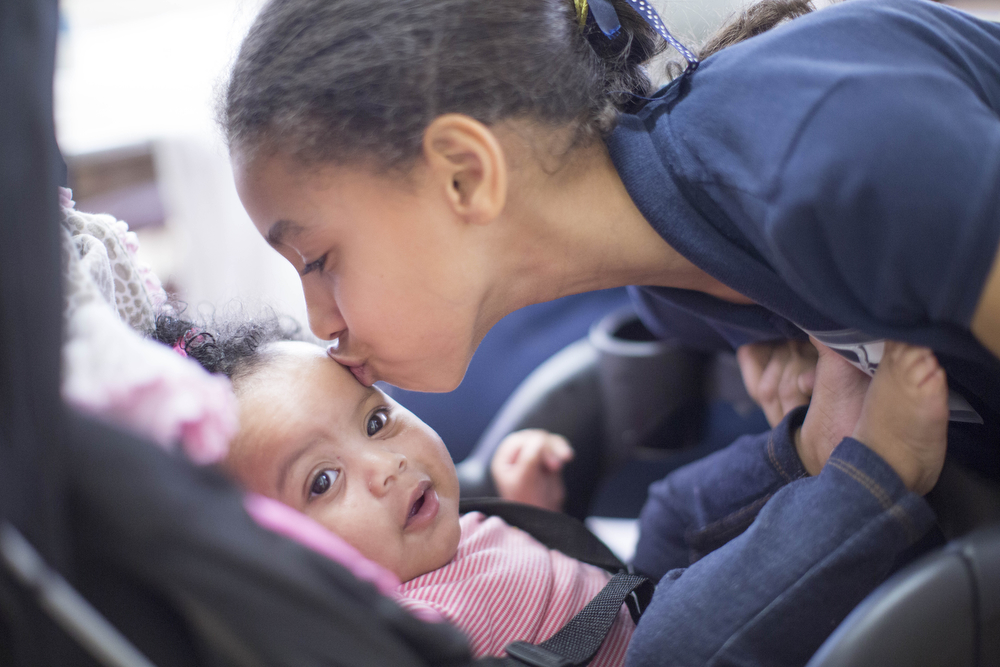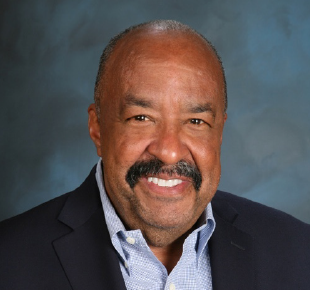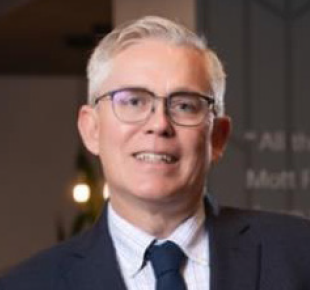
- This event has passed.
Rx Kids: A Prescription for Improved Child Health & Well-Being in Flint, Michigan

“We do good, but we often fail to really address root cause issues. And in Flint and communities across the nation, one of the most toxic, one of the most pathogenic root cause issues that predicts the success of our children, our families, is poverty.”
Dr. Mona Hanna-Attisha, the head of Rx Kids who is also affiliated with Michigan State University and the Pediatric Public Health Initiative, shared the above comment in this Funder-to-Funder Conversation as she underscored the need for programs like Rx Kids.
In a session moderated by Dr. Robert K. Ross of The California Endowment, Hanna-Attisha was joined by Luke Shaefer, Ph.D., of Poverty Solutions at University of Michigan and Neal Hegarty of the Charles Stewart Mott Foundation as they shared an in-depth overview of this transformational effort designed to alleviate infant poverty in Flint, Michigan, and beyond. The initiative received a $15 million challenge grant from the Mott Foundation this spring and the partners have leveraged that initial investment, raising about $40 million of the projected $55 million cost. Scheduled to launch in early 2024 Rx Kids will prescribe all expectant mothers in Flint a one-time prenatal cash allowance of $1,500 and all infants born in Flint a monthly allowance of $500 during the first year of life. While there are a growing number of guaranteed basic income programs in communities across the country, the presenters noted that Rx Kids was unique in that it is the first citywide program of its kind.
Shaefer shared highlights from the deep body of research undergirding this effort—the benefits of cash allowances and a universal approach, the poverty spikes experienced by many families around the time of birth, and the benefits this kind of financial support has on food security, access to books and parent-child interactions. He also explained how the partners worked with state leaders to secure TANF funding, utilizing the flexibility built into that block grant and the provision for Non-Recurrent Short-Term benefits to cover four of the 12 monthly payments to families with infants.
“We were able to make the case that this could chart a new path of providing the support to families during a critical, acute, and economically challenging time that is also developmentally important, and complement that with the incredible philanthropic support of C.S. Mott and other foundations,” Shaefer stated.
Hegarty offered the funder perspective on the initiative, noting that the board and staff at the Mott Foundation were enthusiastic about the idea. But they initially struggled with it because “it didn’t fit neatly into any of [their] boxes….It’s a little bit policy, a little bit poverty, a little bit child and maternal health, and a little bit community development.” But they also recognized the innovation and research undergirding the idea and its potential to both have a powerful impact locally and scale nationally, enabling them to make the initial investment with unanimous board support.
With that dual focus on effective implementation in Flint and scaling beyond, the partners are creating a playbook and carefully evaluating the impact of the effort. They are tracking its impact on frequency of prenatal and pediatric visits, birth and child outcomes, and the local economy, as well as its impact on the social contract and trust in government and institutions—trust that was greatly harmed by the water crisis. The partners are already in conversation with elected officials in other communities and at the federal level, noting that a relatively modest federal investment of $10 billion could enable the scaling of Rx Kids to reach every baby on Medicaid nationwide.
Ross commended the partners for their success in not only crafting a comprehensive, research-based approach but also helping to change the narrative about support for families from a frame of “welfare and charity” to one of “investment and prevention.”
After their presentation, Ross invited Dona Ponepinto of United Way of Pierce County to share her reflections on their overview of Rx Kids and the work that UWPC is doing to alleviate poverty. She lifted up the focus on joy, love, storytelling, trust and dignity in what the presenters had shared and commended them for addressing the underlying systems and their efforts to change the narrative and create a scalable model. She shared that Tacoma was a part of a guaranteed basic income demonstration and UWPC was a part of a Poverty Reduction Work Group. UWPC is also working to advance policy changes to better support the ALICE — Asset-Limited, Income Constrained, Employed — population in Pierce County.
Ponepinto stated: “What I’m leaving with from the conversation is that this is doable. The resources are there. We know the benefits of this cash assistance system. How can we affect policy at a national level and utilize public and private resources in different ways to really address some of these root causes of poverty, starting from birth and breaking that intergenerational cycle of poverty?
Panel







